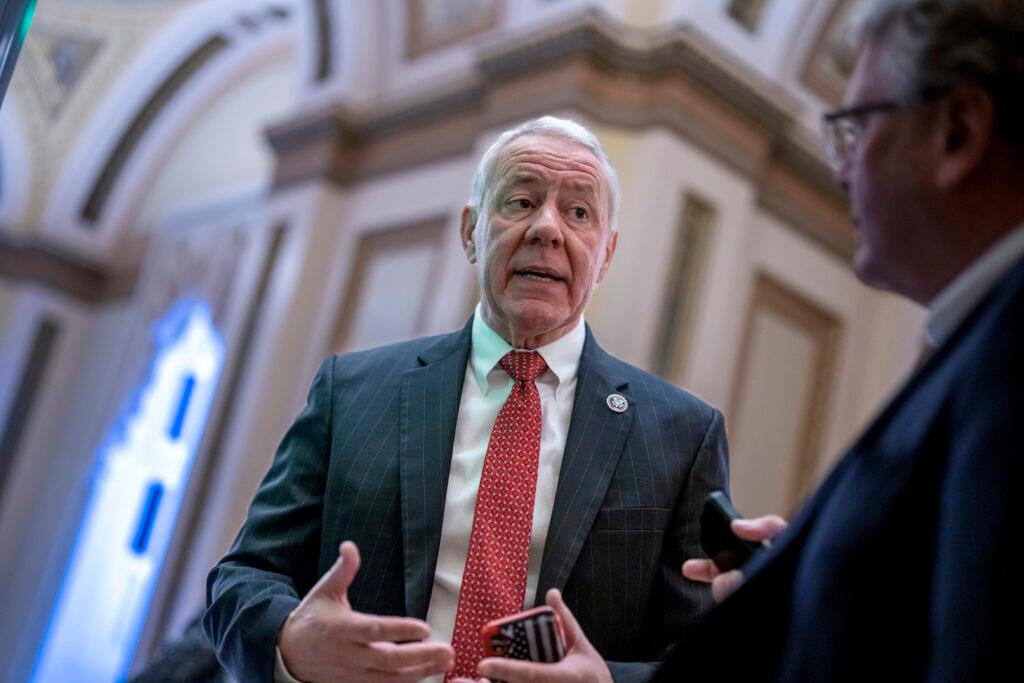
Last year, Colorado’s members of Congress took advantage of a rule change that allows them to be reimbursed for lodging and food costs during their official work while in Washington, D.C.
The change was made by the Democratic-majority House in the waning weeks of the 117th Congress, and nearly all Colorado Democrats and Republicans made use of it in the 118th Congress. The funding comes out of what’s known as their Members’ Representational Allowance, which supports their official and representational duties, from staff salaries and travel to office rent and mailings to constituents.
The MRA is a fixed amount, so lawmakers have to weigh any living expense reimbursements against other uses of the funds. Still, the New York Times estimated that if a member took full advantage of the new rule, it could put $34,000 back into their pockets.
While the use of the reimbursements varied among Colorado members in 2023, it did not include costs for August, when Congress was in recess, or December.
Republican Rep. Doug Lamborn claimed the most out of the delegation. He covered $19,086.61 for lodging and $2,455.98 for meals for the ten covered months.
Democratic Rep. Jason Crow claimed $17,322 on his D.C. lodging in 2023 and $3,498.20 in meals during that same time frame, while Democratic Rep. Diana DeGette got back $13,288.14 in lodging and $2,680.81 for meals.
DeGette pointed out members are required to be in D.C. for 28 weeks during the session, but unlike Colorado’s state legislature, Congress has never provided a per diem to legislators to help cover costs when they are in D.C. for session.
“Members of Congress need to cover additional living expenses, such as housing, food, and utilities when they are in Washington on official business,” she said in a statement to CPR News. “Congress recently started a similar program (to Colorado’s) to help Members pay for these necessary expenses while the House is in session. The program is especially important now, as the cost of living continues to rise as it has for the past 30 years.”
GOP Rep. Lauren Boebert only started using the reimbursement in March, getting back $14,408 for lodging from then to the end of November last year.
On the other hand, Democratic Rep. Joe Neguse only reimbursed himself $4,541.04 in lodging claims from January through May 2023.
The state’s two freshman lawmakers, who came from the state legislature, have only known a Congress where living expense reimbursements have been an option.
Democratic Rep. Yadira Caraveo claimed $14,741 for lodging in 2023 and $300.60 for meals in October and November, while Democratic Rep. Brittany Pettersen spent $17,432.27 on lodging and $1,233.61 for meals in 2023.
Rank and file lawmakers earn $174,000 a year, but many on both sides of the aisle have said it’s difficult to stretch that to cover life in D.C., on top of their homes in the district. In the past, dozens of lawmakers would sleep in their offices because they couldn’t afford to pay for a second residence.
Former GOP Rep. Ken Buck was the only member of the Colorado delegation not to take advantage of the rule change in the 118th Congress. Still, he told the New York Times in a story about outgoing members, that there is a financial burden when it comes to living and working in two places.
“If I go back to my district, where the average salary in some places is $32,000 and say ‘I don’t make enough,’ when I make $174,000, they would go ballistic,” Buck said. “Yet, trying to maintain two places to live, and have clothes in two places and have a car in two places, it’s very difficult.”

Lamborn told the New York Times that member salaries, “should at least keep up with inflation.”
The Select Committee on the Modernization of Congress’s final report supported the rule change, arguing it would broaden the pool of people who could afford to serve in Congress. “More candidates are willing to run for office if they see public service as an economically viable career,” the report stated.
Congress last received a pay increase in January 2009.









